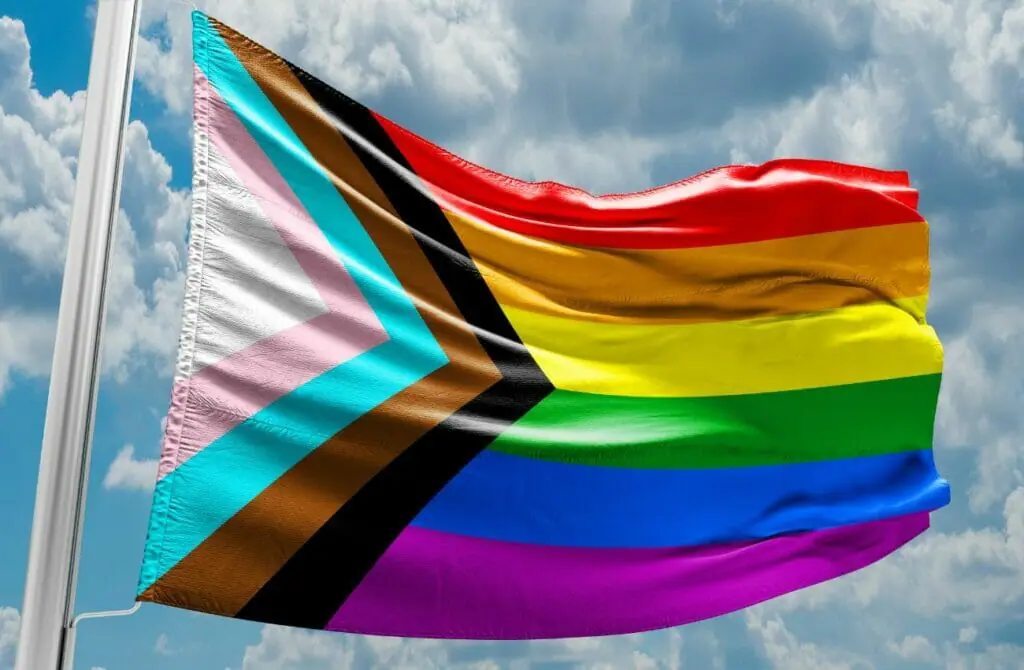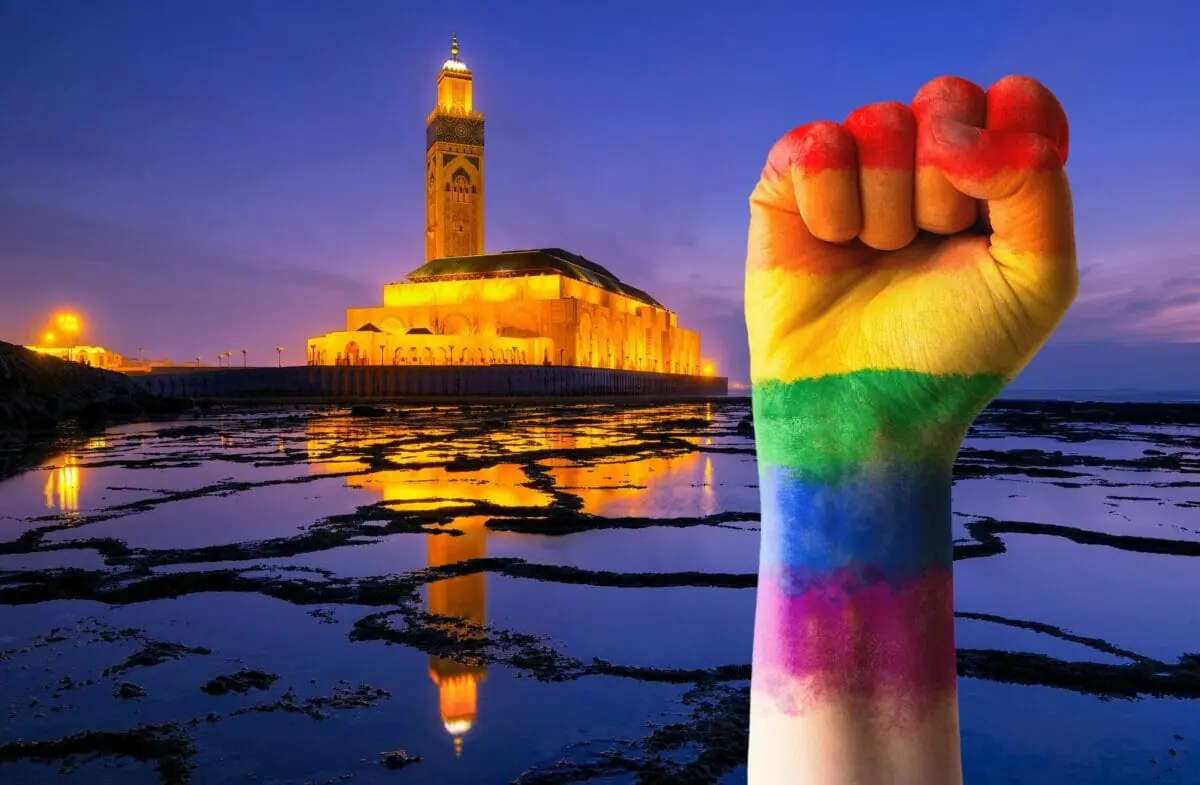As an avid queer traveler and LGBT activist, I invite you to explore the intricacies of LGBT rights in Morocco and how they may affect both locals and tourists. Morocco is a beautiful and culturally rich country, but its legal stance on homosexuality can pose challenges for members of the LGBT community.
Homosexual acts are illegal in Morocco, punishable by up to three years in prison – and while this law tends to be more strictly enforced for locals, tourists are not exempt from these restrictions.
It’s essential to understand that the Moroccan LGBT community faces significant persecution. Beyond the potential for jail time, public shaming, harassment, and violence are real risks for those publicly identifying as LGBT. While the situation may, on occasion, seem more lenient for tourists, it is crucial to exercise caution during your visit and to remain vigilant. This includes avoiding public displays of affection, which are culturally frowned upon for both opposite and same-sex couples.
As you plan your trip to Gay Casablanca, Gay Marrakesh, or wider Morocco, keep in mind that the situation can change rapidly, and information may become out of date. Always seek current advice related to LGBT rights and safety in the country before you embark on your journey.
It’s better to err on the side of caution, as regulations and public opinion can shift, and there may always be bad actors looking to take advantage of vulnerable individuals. Stay safe and informed, and enjoy your travels responsibly.
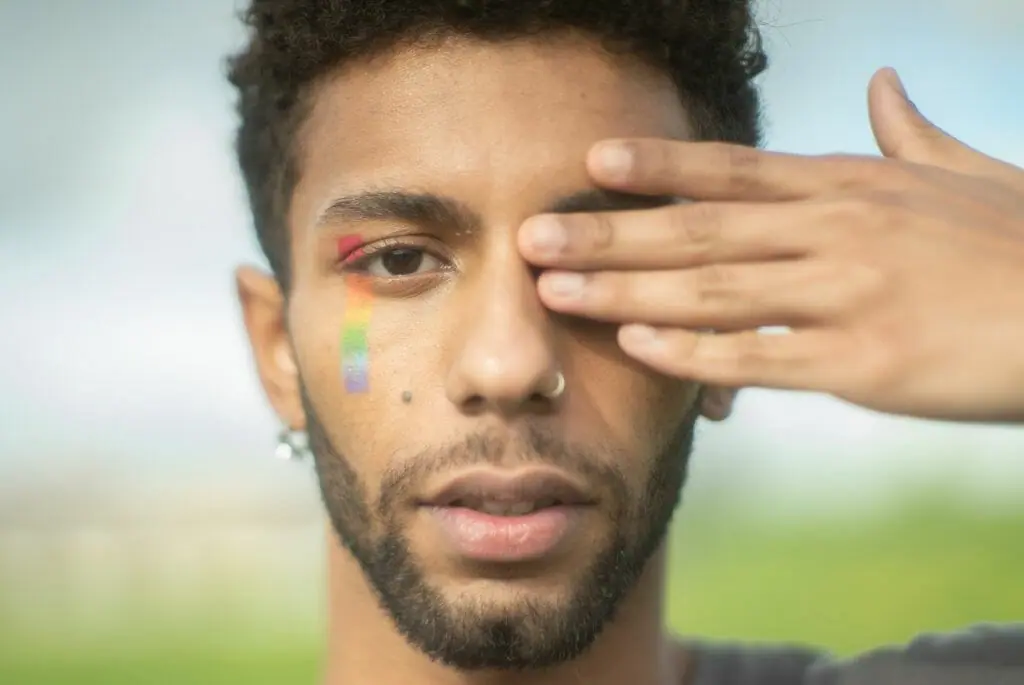

History Of LGBT Rights In Morocco
Morocco is a country with a rich and complex history when it comes to LGBT rights. As a travel writer with a keen interest in the subject, it’s important to understand the challenges faced by both the local population and tourists visiting the country.
LGBT rights in Morocco have historically been minimal, with policies regarding the topic rarely discussed by major or minor political parties. The criminalization of homosexuality does not comply with Morocco’s 2011 Constitution, and organizations like Human Rights Watch have called for legal reform. The dialogue around LGBT rights in Morocco has been scarce, and there has been no official legislative change implemented.
For local LGBT individuals, the situation remains tough, with many facing discrimination, social stigmatization, and even violence. The emergence of social media initially provided some hope for increased visibility and interaction; however, recent actions by public figures have resulted in a backlash against the community, making social media a riskier space for LGBT Moroccans.
When it comes to tourists visiting Morocco, the risks are generally lower, but caution is still necessary. Although the legal situation surrounding LGBT rights might not be as concrete, travelers should remember that social attitudes may differ from their home countries. It’s important to be respectful of local customs and expectations while remaining vigilant in public.
In order to protect oneself, travelers should be cautious when using dating apps or engaging in conversations about LGBT rights that could potentially jeopardize one’s safety. It’s always crucial to seek out and connect with local resources, such as NGOs or community groups, that can offer support and guidance in case of an emergency.
However, as situations can change rapidly, information may become outdated. Always seek current advice before traveling to any destination and maintain a level of awareness when navigating unfamiliar terrain. Morocco is a beautiful and diverse country with much to offer, but understanding the legal and social complexities surrounding LGBT rights is critical to ensuring a safe and enjoyable experience.
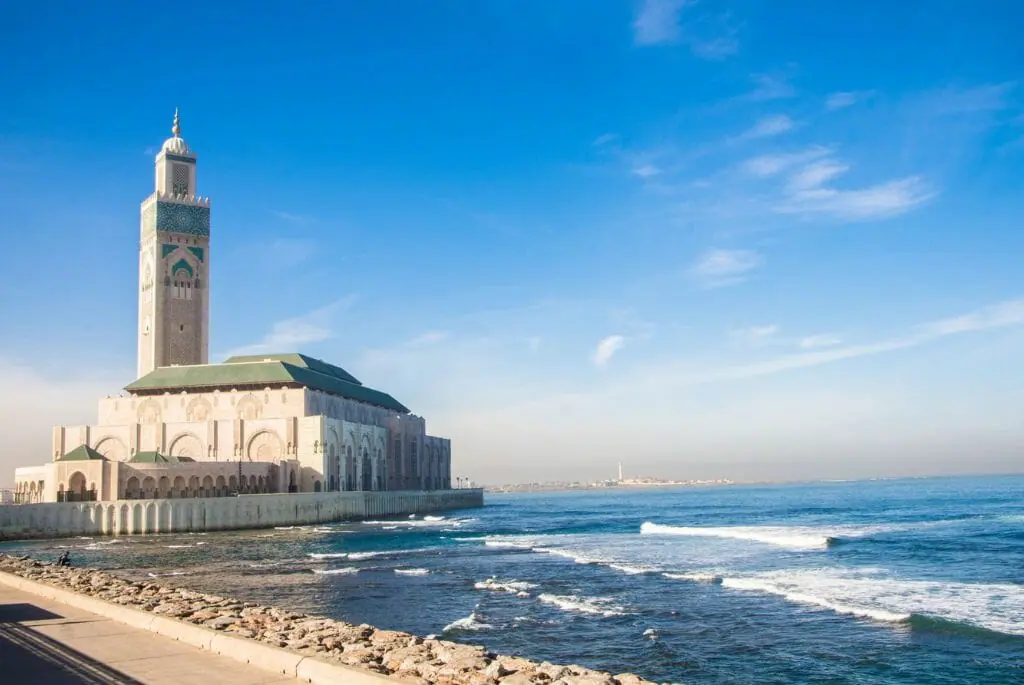

The LGBT Current Situation In Morocco
In Morocco, the LGBT community faces numerous challenges due to a combination of legal restrictions and cultural norms. Homosexuality is illegal and punishable by imprisonment in the country. There are no laws protecting against discrimination based on sexual orientation or gender identity, and same-sex marriage is not recognized. Despite these restrictions, the situation for tourists and locals can differ significantly.
I want to emphasize that while travelers may experience more leniency in overcoming social barriers, local Moroccan LGBT individuals often struggle to find acceptance within their communities. Tourism is a major source of income for Morocco, and the authorities are generally more tolerant towards tourists’ behavior. But bear in mind that homosexual acts are still illegal, and travelers should exercise caution and be mindful of the cultural norms.
It is vital for LGBT travelers to prioritize their safety during their stay in Morocco. Some practical steps can be taken to avoid potential threats or uncomfortable situations. For instance, avoid public displays of affection, dressing in a gender-nonconforming manner, or engaging in deep conversations on LGBT topics with locals who might not be understanding or supportive.
Responsible travel planning involves staying up-to-date with the latest developments. Situations can change rapidly, and information can become outdated quickly. Before embarking on your journey, seek current advice from reputable sources on LGBT rights and the local atmosphere in the cities or towns you plan to visit.
Remember, every country has its share of bad actors. Morocco is no exception. Always remain vigilant and prioritize your safety and well-being. Keep a low profile, respect the local customs, and avoid attracting unwanted attention during your stay.
Morocco offers a rich cultural experience for travelers, but it’s essential to remain aware of the limitations that the LGBT community experiences, both locally and on a tourist level. By being informed, cautious, and respectful, you can navigate your way through this fascinating country and create an enriching travel experience.
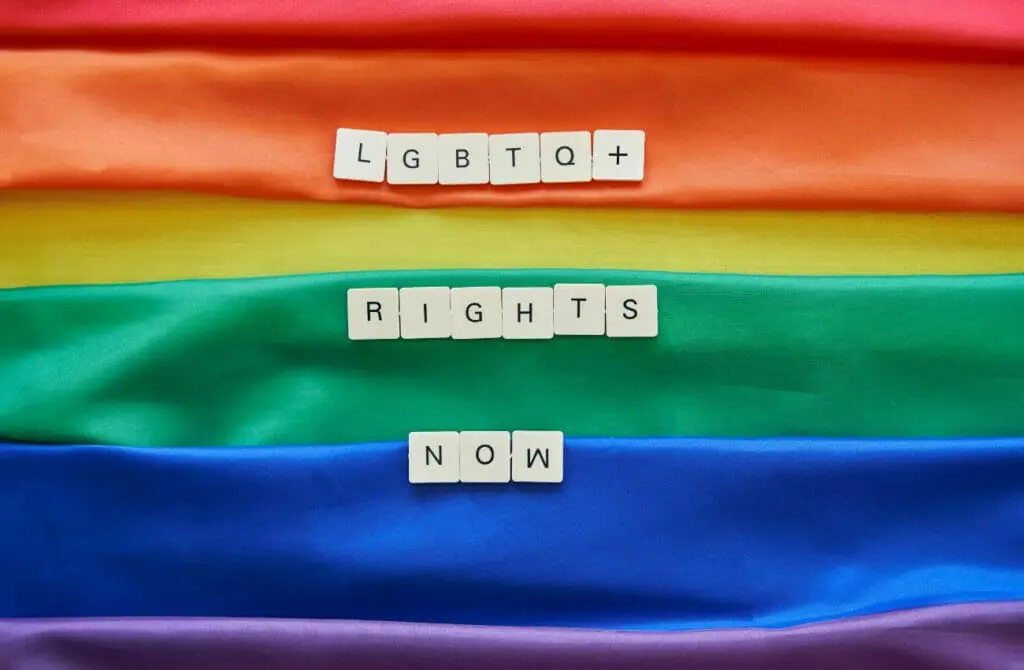

The Future For The Queer Community In Morocco
It is important to understand the differences in how LGBT rights affect local Moroccans and visiting tourists. Although homosexuality remains illegal in the country, the way it impacts the daily lives of locals and tourists can vary significantly.
Local LGBT individuals face a much tougher situation, as societal attitudes and legal restrictions create an environment where they often do not have the same protections or opportunities as their heterosexual counterparts. Social media had previously offered a safe space for the LGBT community in Morocco to interact. However, recent incidents have undermined this. For example, the outing of gay men on dating apps in 2020 greatly impacted the safety of LGBT people in the country.
On the other hand, LGBT tourists visiting Morocco may not face the same level of risk, thanks to the perception of foreign visitors being more liberal. That said, it is crucial to remain aware of the local laws and customs. Some steps that can be taken to protect yourself include keeping public displays of affection to a minimum, dressing modestly, avoiding conversations on sexuality, and respecting the local culture.
While there have been calls from the Council of Europe’s Parliamentary Assembly to cease enforcement of the criminal code sections that penalize same-sex relations, no concrete changes have taken place yet. The fight for LGBTQ+ rights in the country is still relatively new, and it is essential for travelers to be cautious and mindful during their visit.
Keep in mind that situations can change fast, and information may become outdated. Always seek current advice before traveling, and remember that, like anywhere else in the world, there are bad actors in every country. As a responsible traveler, always remain vigilant and adhere to local guidelines.
The future of LGBT rights in Morocco remains uncertain. Stay informed, exercise caution, and ensure that you have the most up-to-date information before planning your trips.
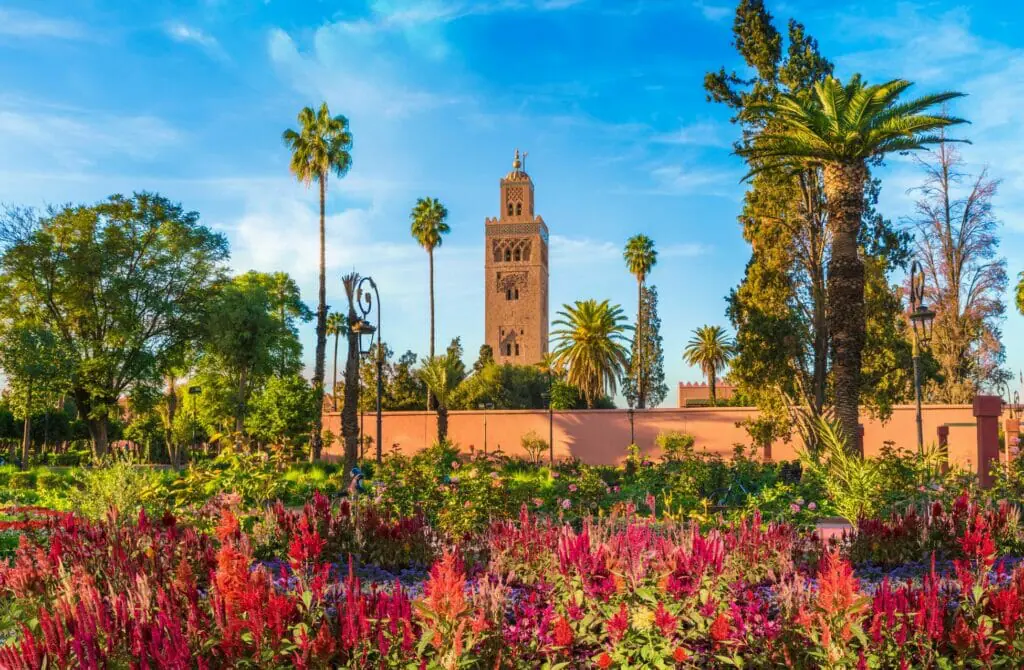
Protect Yourself While Travelling In Gay Morocco
As an LGBT traveler visiting Morocco, it’s important to be aware that the experiences and challenges faced by local LGBT individuals may differ from those of visitors. While same-sex sexual activity is illegal for both locals and tourists, the enforcement of such laws may be less stringent for foreigners. That being said, visitors should still exercise caution.
To best protect yourself during your visit, adhere to the local customs and norms. Public displays of affection (PDAs) are frowned upon for both opposite and same-sex couples in Morocco, so it is wise to avoid drawing attention in this way. Additionally, try to respect the local cultural norms when dressing, behaving, and engaging with others.
Keep in mind that the situation and local attitudes towards LGBT individuals can change rapidly. Therefore, it’s crucial to stay informed about any recent developments or changes in Moroccan law that may impact your travel experience. Research the current situation in the country by seeking out local sources or reputable organizations that are knowledgeable in LGBT issues within Morocco.
As in every country, there will be bad actors and individuals who do not share acceptance towards LGBT persons. Be vigilant at all times, especially when entering unknown or unfamiliar areas. Trust your instincts and reach out to friends and support networks for any assistance you may need during your travels.
Remember that information can become outdated, and the situation may change swiftly. Before embarking on your trip, make sure to consult updated sources and seek advice from trusted organizations regarding LGBT rights and safety in Morocco. In doing so, you’ll be better equipped to enjoy your adventures while prioritizing your well-being.
